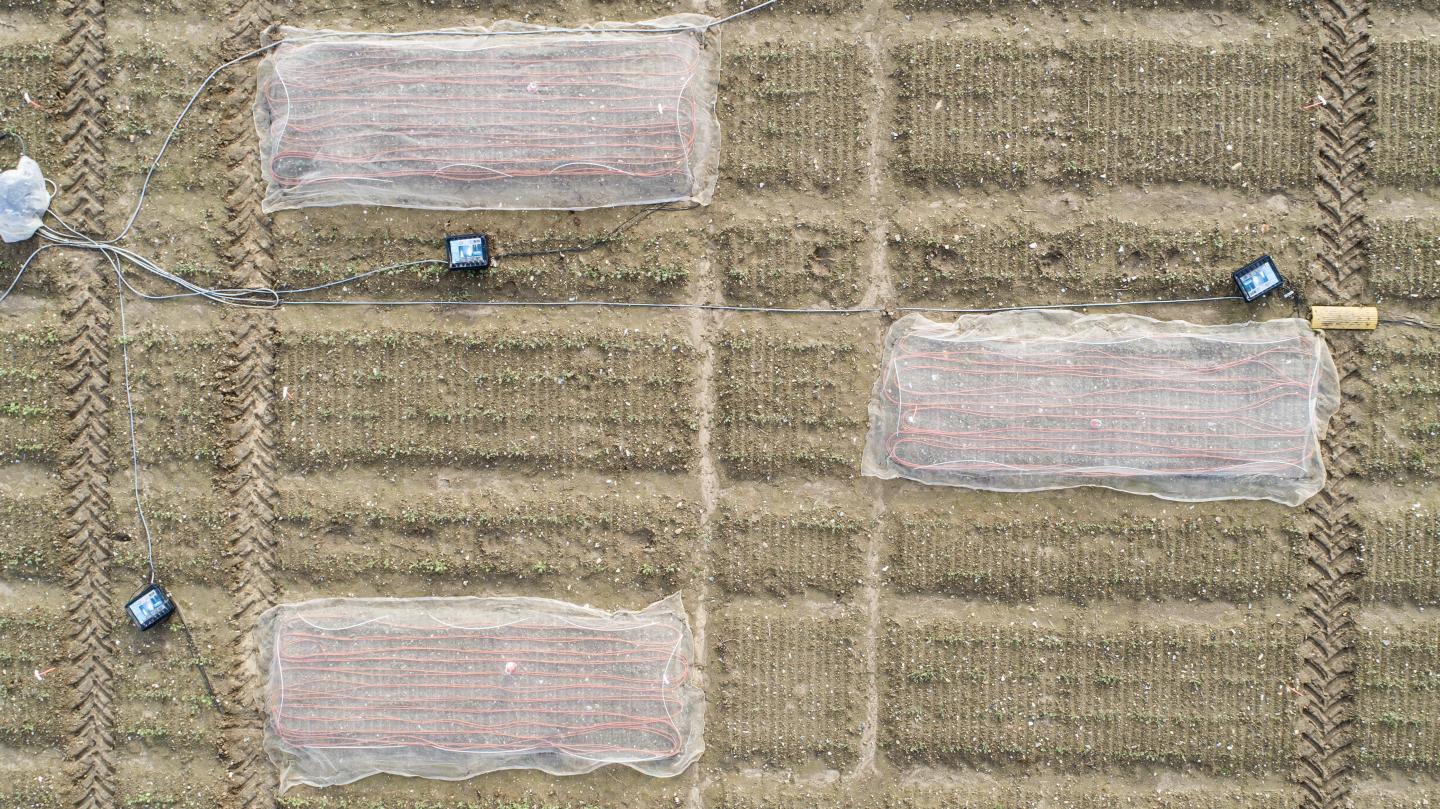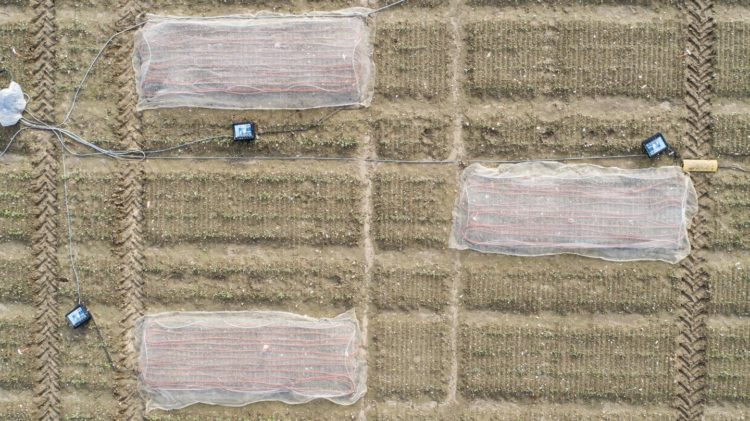
Credit: Phil Robinson
Pioneering experiments using heated field plots to test the responses of crops to temperature have revealed an unexpected plus side of climate change for farmers.
The field trial experiment – the first of its kind – was set up to investigate the link between warmer Octobers in the United Kingdom and higher yields of oilseed rape.
The crop, planted in autumn and harvested early the following summer, is particularly sensitive to temperature at certain times of the year with annual yields varying by up to 30 percent as a result. It is known that warmer temperatures in October are correlated with higher oilseed rape yields, but the reason for this trend was unclear.
The results of this study by the John Innes Centre reveal that the temperature in October is surprisingly important for the timing of flowering, and that warmer Octobers result in a delay to flowering the following spring.
Professor Steve Penfield an author of the study says, “We found that oilseed rape plants stop growing when they go through the floral transition at the end of October, and that warmer temperatures at this time of year enable the plant to grow for longer, giving more potential for higher yields.”
The good news for growers of oilseed rape is that Met Office data shows cold Octobers are now much less frequent than they were in the past.
“By establishing the link between autumn temperatures and yield, our study highlights an example of climate change being potentially useful to farmers. Cold Octobers have a negative effect on yield if you are growing oilseed rape, and these are now rarer,” says Professor Penfield.
Temperature is critical for oilseed rape lifecycle because it determines at what point the plant goes through the transition from vegetative state to flowering, with delays in flowering being associated with higher yields.
This process called vernalisation is well understood in the lab as a requirement of a prolonged exposure to cold temperature. But an increasing body of research suggests vernalisation might work differently under more variable conditions experienced by a plant in the field.
In this study the team used soil surface warming cables to raise the temperature of field plots by between 4 and 8 degrees Celsius, simulating warmer October temperatures. Two varieties of oilseed rape with differing vernalisation requirements were trialled.
Lab tests on dissected plants showed that warming in October conditions delayed floral transition by between 3 and 4 weeks for both varieties. Genetic tests showed genes associated with vernalisation in cold conditions were also highly expressed in the warm conditions.
The study shows that vernalisation in oilseed rape takes place predominantly during October during which time the mean temperature is between 10-12 degrees Celsius.
The technology used in the study has been used before in natural grasslands to simulate winter warming but the trials conducted by the John Innes Centre research team are the first time it’s been used on a crop in the field.
“This study was only possible because were able to create the lab into a field to simulate how climate change is affecting UK agriculture,” says Professor Penfield. “It’s important to be able to do this because yield is highly weather dependent in oilseed rape and it is very likely that climate change will have big consequences for the way we can use crops and the type of variety that we need to deploy.”
###
The full study: Vernalisation and floral transition in autumn winter-annual life history in oilseed rape appears in Current Biology.
Media Contact
Adrian Galvin
[email protected]
01-603-450-238
Related Journal Article
http://dx.





